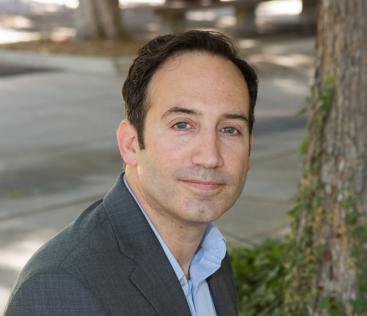
A medical sociologist at the University of California, Riverside, is part of an international research team tasked with exploring some of the ambiguities surrounding whether parents choose to vaccinate their children.
Richard M. Carpiano, a UC Riverside professor of public policy and sociology, is one of eight researchers involved in the Denmark-based, four-year project. Their work is supported by a grant totaling nearly $1.53 million from the Danish Novo Nordisk Foundation.
The multipronged study is focused on several aspects of vaccination practices in Denmark. Carpiano is looking at the impacts of socioeconomic status on whether vaccination occurs and how misinformation may be shaping socioeconomic gaps in vaccine uptake.
“There’s a lot of hesitancy surrounding vaccines, and much of it is caused by misinformation,” Carpiano said. “We have a highly effective and safe tool for preventing disease and death, but strangely enough, it’s being questioned.”
Parental refusal of vaccines is a particularly interesting phenomenon because parents who choose not to vaccinate their children tend to be more educated and have higher incomes than parents who do, Carpiano said.
“A number of factors have been implicated for this, with one being a modern culture of parenting that emphasizes being really protective of one’s children,” he said. “There also seems to be a growing lack of confidence in the medical profession’s ability to protect us, much like the mistrust of government we’re seeing more and more of.”
Vaccination isn’t legally mandated in Denmark. In addition to the challenges the country faces with vaccination coverage, it’s an especially attractive place to conduct such a study because of its national health registry, Carpiano said. Access to the registry provides the researchers with detailed medical information for every Danish-born child — information that can later be linked to socioeconomic data about the same children’s families.
Along with his co-researchers, Vibeke Tornhøj Christensen of The Danish Center for Social Science Research and Andrea Polonijo of the University of British Columbia, Carpiano will use the data to determine, for example, how misinformation about the human papillomavirus, or HPV, vaccine — which can prevent certain types of cancer — may contribute to socioeconomic disparities in which children receive the vaccine.
The team will also examine the extent to which local community socioeconomic conditions may be producing clusters of unvaccinated children in specific locations over time. Such clusters pose greater risk for disease outbreaks, Carpiano explained.
Carpiano, whose research focuses on social determinants of health, said he first became interested in studying trends in vaccine uptake during a 2015 measles outbreak that affected 147 people. The U.S.-based outbreak was eventually traced to Southern California’s Disneyland theme park, and among the reported measles cases, many of the patients were unvaccinated.
“When you think about the top 10 greatest public health successes of the 20th century, the development of vaccines is certainly one of them,” he said. “But vaccines have sort of become victims of their own success; in high-income countries like the U.S. and Denmark, people might not think vaccines are important because they’re just not used to seeing cases of measles or diphtheria or polio anymore.”
In a similar vein, Carpiano is currently part of an additional team of researchers studying hesitancy among parents toward the use of topical fluoride. Fluoride has proven successful for decades at preventing tooth decay, but Carpiano said an increasing number of parents are demonstrating hesitancy about its use during their children’s routine dental check-ups.
The nearly $363,000 grant supporting the fluoride project comes from the National Institute of Dental and Craniofacial Research, a division of the National Institutes of Health. The four-year initiative is led by Donald Chi, a pediatric dentist and health services researcher at the University of Washington.
Findings from both projects ultimately will be used to improve techniques for helping parents better understand the benefits of health interventions they might be unsure of. One hope is that by understanding the reasons for skepticism toward things like vaccines and fluoride, public health professionals might be able to tailor their campaigns to speak more efficiently to parents’ concerns.
“For some parents, deliberately staying away from things like vaccines and fluoride might be seen as the ‘better’ choice,” Carpiano said. “A big part of what we’re trying to figure out is: Does all this tie to some sort of broader, latent attitude toward health interventions for children?”




